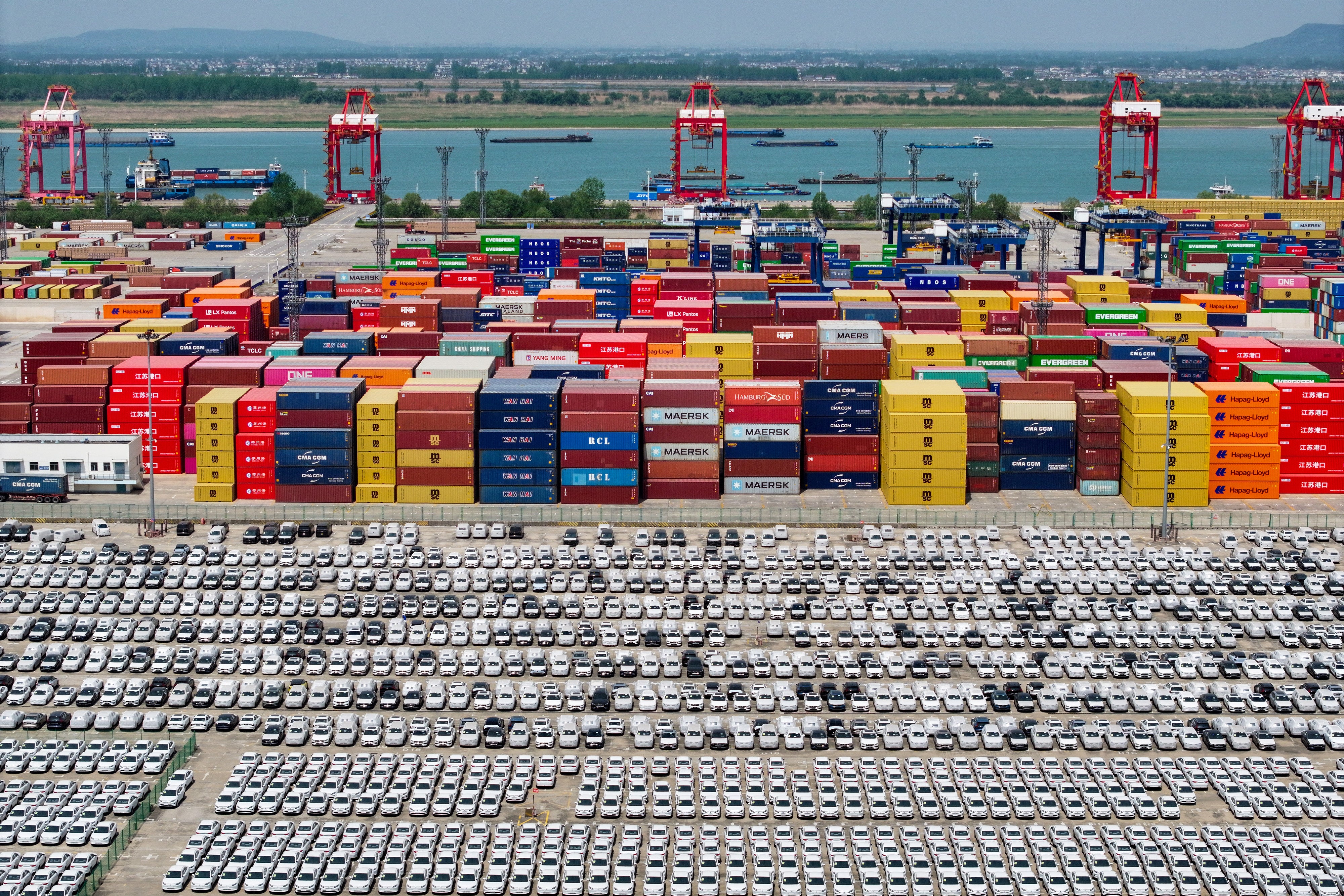A Boeing 737 MAX sent for delivery to China’s Xiamen Airlines returned to the US on Sunday, underscoring the deepening rift in trade relations between the world’s two largest economies.
The aircraft, which had been awaiting final delivery at Boeing’s facility in Zhoushan, landed at the Boeing Field in Seattle at 6.11pm, according to a Reuters witness. It still bore the livery of Xiamen Airlines.
The jet’s transpacific journey included refuelling stops in Guam and Hawaii.
While the specific reasons for its return remained unclear, the incident reflected the increasing trade disruption caused by US president Donald Trump’s imposition of steep tariffs on China earlier this month.
The Independent has contacted Boeing and Xiamen Airlines for comment.
Mr Trump escalated a trade war with Beijing this month by raising tariffs on Chinese imports to a baseline of 145 per cent.
In retaliation, Beijing imposed a 125 per cent tariff on American goods.
Trade analysts suggested that such steep levies could make it financially unfeasible for Chinese airlines to take delivery of American aircraft. Aviation consultancy IBA put the market value of a Boeing 737 MAX at around $55m.
China, meanwhile, cautioned third countries against making trade concessions to the US at its expense, accusing Washington of using tariffs as leverage to isolate Beijing and distort global trade.
“Appeasement cannot bring peace and compromise cannot earn one respect,” a spokesperson for the commerce ministry said, criticising what it described as US attempts to coerce other countries into tradeoffs that would undermine Beijing’s interests.
"China believes that all parties should stand on the side of fairness... and should defend international economic and trade rules and the multilateral trading system,” the spokesperson was reported as saying by the BBC.

The warning followed a report by Bloomberg that the US administration was pressuring countries seeking relief from steep American tariffs to curb their trade with China.
Citing unnamed US officials, the report claimed that financial penalties could be imposed on countries that failed to comply with the proposed terms.
The Chinese commerce ministry said it respected all parties seeking to resolve economic and trade differences with the US through “consultation on an equal footing” but that Beijing would firmly oppose any party striking a deal at its expense.
If any country sought such arrangements, the ministry added, China “will take countermeasures in a resolute and reciprocal manner”.
Several countries like Japan and Indonesia were reportedly talking to the US to avoid heavy import tariffs. While Japan was considering raising imports of American rice and soybean, Indonesia could increase the purchases of food and commodities, potentially reducing orders from other suppliers.
US trade representative Jamieson Greer claimed earlier this month that some 50 countries had approached Washington seeking exemptions from Mr Trump’s new tariff regime.
Beijing condemned Washington’s approach. “The United States has abused tariffs on all trading partners under the banner of so-called ‘equivalence’, while also forcing all parties to start so-called ‘reciprocal tariffs’ negotiations with them,” the ministry of commerce said.
President Xi Jinping, during a visit to three Southeast Asian countries last week, called for unity against unilateral economic pressure. “There are no winners in trade wars and tariff wars,” he said in an article published by Vietnamese media in a clear nod to ongoing tensions without directly naming the US.
Jesper Koll, an analyst at Japanese trading firm Monex Group, noted the difficult position for countries caught between the two powers.
“Certainly, Japan doesn’t want to choose between America and the People’s Republic of China,” he said.
JD Vance and wife Usha arrive in India for first official visit
Hotel chains should not ‘sanitise’ China abuses in Xinjiang, Uyghur rights group says
China executes man for fatal stabbing near Japanese school
Russia’s top court removes the Taliban’s terror group designation
China is supplying weapons to Russia, says Zelensky
Chinese people flood TikTok with videos urging Americans to buy direct







